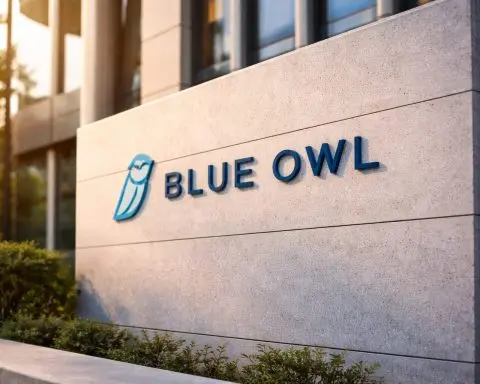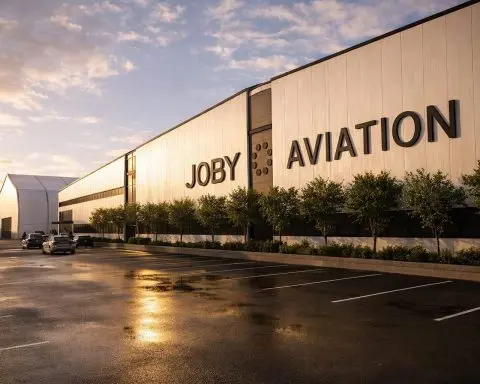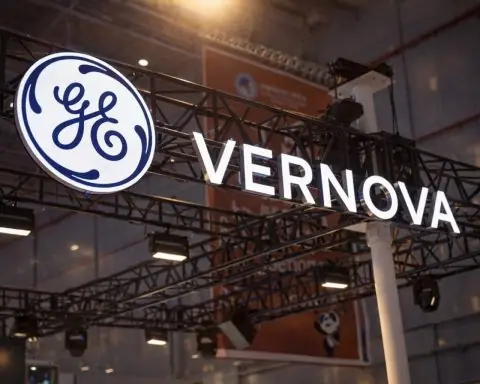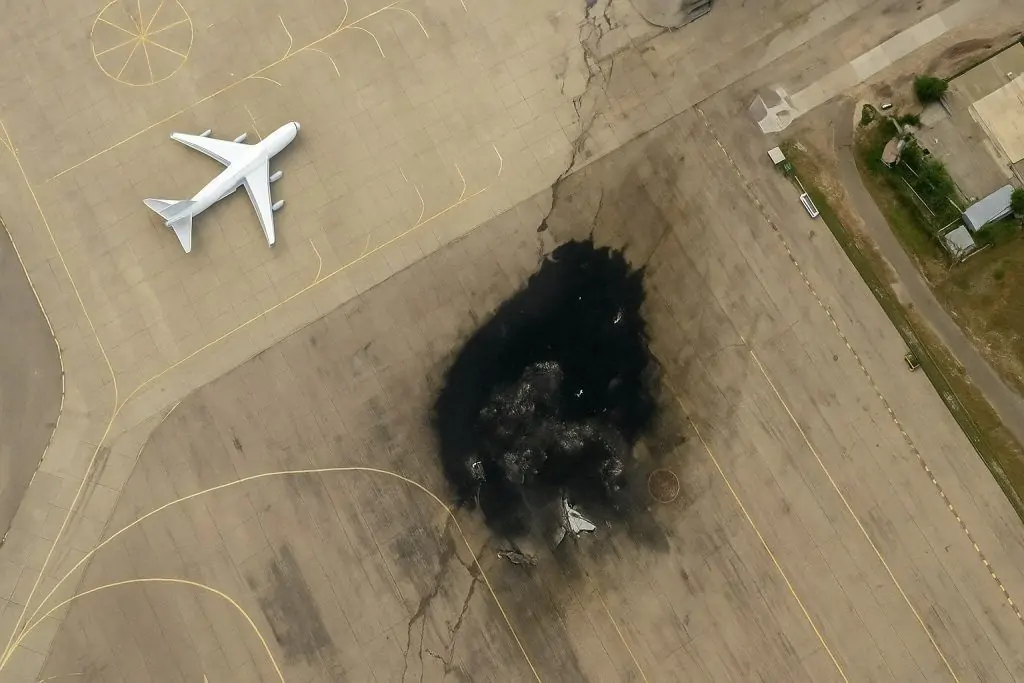- SpaceX (USA, founded 2002 by Elon Musk) achieved the first private orbital rocket launch in 2008, performed the first booster landing in 2015, and launched the Starlink mega-constellation.
- Blue Origin (USA, founded 2000 by Jeff Bezos) completed the first vertical landing of a New Shepard booster in 2015, flew the first crewed suborbital flight in July 2021, and conducted the first orbital New Glenn launch in January 2025.
- Rocket Lab (New Zealand/USA, founded 2006 by Peter Beck) achieved orbit with its Electron rocket in January 2018, establishing itself as a leading small-launch provider with over 30 Electron missions.
- Astra (USA, founded 2016 by Chris Kemp and Adam London) reached orbit in 2021 with Rocket 3 and went public via SPAC in 2021 at a $2.1 billion valuation.
- iSpace (China, founded 2016) became the first private Chinese company to reach orbit with its Hyperbola-1 in July 2019 and has raised over $173 million to develop larger rockets including Hyperbola-2.
- Galactic Energy (China, founded 2018 by Liu Baiqi and Xia Dongkun) achieved China’s second private orbital launch with Ceres-1 in November 2020 and had five orbital launches by 2023, including a private sea-based launch in 2023.
- Astroscale (Japan, founded 2013 by Nobu Okada) launched the ELSA-d debris-removal mission in 2021 and won a $25.5 million U.S. Space Force contract in 2023 to develop a satellite refueling vehicle.
- Axiom Space (USA, founded 2016 by Michael Suffredini and Kam Ghaffarian) conducted the first fully private crew mission to the ISS (Ax-1) in April 2022 and is building the Axiom Station, with its first module planned for attachment to the ISS in 2025 after raising over $400 million.
- Nanoracks (USA, founded 2009 by Jeffrey Manber) became the first private company to install hardware on the ISS in 2010 and leads the Starlab private space station project, backed by roughly $160 million in NASA funding and acquired by Voyager Space in 2021.
- Virgin Galactic (USA, founded 2004 by Richard Branson) became the first commercial suborbital space tourism company, flying Branson to the edge of space in July 2021, launching Galactic 01 for researchers in June 2023, and starting private paying flights in August 2023 with tickets around $450,000.
The global space industry is booming with innovative startups across continents – from launch vehicle developers to satellite manufacturers, Earth observation firms, communications constellations, in-orbit service providers, and space tourism pioneers. Below we compile 100 notable space and satellite startups from around the world, grouped by their specialization. Each entry lists the startup’s country of origin, founding year, key founders, a brief description of its products or services, specialization, major milestones, funding (if available), and official website. This comprehensive roundup showcases the diversity and global reach of the NewSpace ecosystem in 2025. Let’s launch into the list!
Launch Vehicle Startups – New Rockets Race to Orbit
These startups specialize in designing and launching rockets, often with innovative techniques like reusable boosters or 3D-printed engines, to send satellites (and eventually people) to space.
- SpaceX (USA, founded 2002 by Elon Musk) – Revolutionized commercial spaceflight with Falcon rockets and Dragon spacecraft, achieving first orbital rocket reusability and launching the Starlink mega-constellation. Specialization: orbital launch services and spacecraft. Milestones: first private orbital rocket launch in 2008, first booster landing in 2015, and regular crewed missions for NASA by 2020. Funding: over $10 billion raised; valued around $350 billion after a 2024 share offer. Website: spacex.com
- Blue Origin (USA, founded 2000 by Jeff Bezos) – Developer of reusable suborbital and orbital rockets (New Shepard, New Glenn) and lunar landers (Blue Moon). Specialization: suborbital tourism and heavy-lift launch. Milestones: first vertical landing of New Shepard suborbital booster in 2015; first crewed suborbital flight with Bezos in July 2021; first orbital New Glenn launch in Jan 2025. Funding: backed primarily by Bezos’s private investment (over $500M by 2016). Website: blueorigin.com
- Rocket Lab (New Zealand/USA, founded 2006 by Peter Beck) – Launch provider of the small Electron rocket and developing the medium Neutron rocket. Specialization: small satellite launches. Milestones: first Electron reached orbit in January 2018, making Rocket Lab a leading dedicated small-launch company. It operates launch sites in NZ and the US, and has launched over 30 Electron missions. Funding: raised ~$288 million as a private company; went public via SPAC in 2021. Website: rocketlabusa.com
- Relativity Space (USA, founded 2015 by Tim Ellis & Jordan Noone) – Pioneering 3D-printed rockets (Terran 1 and reusable Terran R). Specialization: orbital launch vehicles using additive manufacturing. Milestones: launched the world’s first 3D-printed rocket, Terran 1, on a test flight in 2023 (reached space but not orbit), proving rapid manufacturing tech. Has secured launch contracts for its larger Terran R. Funding: over $1.3 billion raised, valuing Relativity at $4.2 billion. Website: relativityspace.com
- Firefly Aerospace (USA, re-founded 2017 by Tom Markusic) – Developer of Alpha small orbital rocket and Blue Ghost lunar lander. Specialization: small launch vehicles and space services. Milestones: after a 2017 reboot, Firefly achieved its first successful orbital launch of Alpha in Oct 2022, and a fully successful Alpha launch in Sept 2023. It’s under contract to deliver NASA and commercial payloads to the Moon. Funding: backed by private investors (including AE Industrial) and strategic partners, raised ~$75 million Series B in 2022. Website: fireflyspace.com
- Astra (USA, founded 2016 by Chris Kemp & Adam London) – Small launch vehicle company aiming for daily space access with mass-produced rockets. Specialization: ultra-low-cost, rapid launch of microsatellites. Milestones: reached orbit in 2021 on its Rocket 3 after several test attempts, becoming one of the fastest startups to achieve orbit. After going public in 2021, Astra shifted to developing a larger Rocket 4 after Rocket 3 failures, and also produces spacecraft engines. Funding: went public via SPAC in 2021 at $2.1 billion valuation. Website: astra.com
- Skyroot Aerospace (India, founded 2018 by Pawan Chandana & Naga Bharath Daka) – India’s first private launch company, developing the Vikram series of small lift rockets. Specialization: small satellite launch vehicles. Milestones: on Nov 18, 2022, Skyroot’s Vikram-S suborbital rocket launch made history as the first privately built Indian rocket to reach space. The orbital Vikram I launch is planned for 2023–24. Funding: raised ~$68 million including a $51 M Series B in 2022 (one of India’s largest space startup funding rounds). Website: skyroot.in
- Agnikul Cosmos (India, founded 2017 by Srinath Ravichandran & Moin SPM) – Developer of the Agnibaan small launcher, built with 3D-printed engines, aiming to offer agile launches (“Uber for satellites”). Specialization: micro-launch services for 100 kg-class payloads. Milestones: successful test firing of its fully 3D-printed rocket engine in 2021; on track for a first Agnibaan launch from India’s spaceport. Raised a $26.7 M Series B in Oct 2023 to commence commercial launches. Website: agnikul.in
- Isar Aerospace (Germany, founded 2018 by Daniel Metzler et al.) – Germany’s leading new launch startup building the two-stage Spectrum rocket for small satellites. Specialization: small orbital launch vehicles. Milestones: completed full-duration engine tests; aiming for Spectrum’s maiden flight from a European spaceport in 2024, which would make it one of the first privately built European rockets to orbit. Funding: secured over $180 M, including support from ESA programs and a $165 M Series C in 2022 (Europe’s largest space tech round) explodingtopics.com. Website: isaraerospace.com
- Orbex (UK, founded 2015 by Chris Larmour & team) – UK-based launcher startup using 3D-printing and bio-propane fuel for its Orbex Prime rocket. Specialization: small satellite launch services. Milestones: Developed the 19-meter Prime micro-launcher and broke ground on Sutherland Spaceport in Scotland, slated to host Orbex’s first launches. In April 2024 Orbex raised $20.8 M to advance toward its debut launch explodingtopics.com. Funding: total ~$130 M including UK and European investors. Website: orbex.space
- Skyrora (UK, founded 2017 by Volodymyr Levykin) – Edinburgh-based company developing the Skyrora XL small orbital rocket and a suite of eco-friendly hybrid engines fueled partly by waste plastics. Specialization: small launch vehicles. Milestones: Successfully test-launched a suborbital Skylark rocket in 2020; built a mobile launch complex. Preparing for a Skylark L orbital attempt from UK soil. Funding: backed by private investment and UK grants, has tested engines and won UK Space Agency support for domestic launch efforts. Website: skyrora.com
- PLD Space (Spain, founded 2011 by Raúl Torres & Raúl Verdú) – Spanish startup building Miura-1 suborbital and Miura-5 orbital reusable rockets. Specialization: small satellite launch and suborbital research flights. Milestones: Launched its Miura-1 suborbital rocket on a successful test flight in May 2023 – marking the first private European suborbital launch. Now developing Miura-5 for the first commercial orbital launches from Western Europe around 2024–25. Funding: raised over €65 M from Spanish and European investors and government contracts. Website: pldspace.com
- Gilmour Space (Australia, founded 2012 by Adam & James Gilmour) – Leading Australian launch provider developing the Eris orbital rocket and hybrid rocket engines. Specialization: small launch vehicles for LEO. Milestones: Conducted full-duration engine tests and planned the first test launch of the 3-stage Eris rocket in 2024. Opened the Bowen Orbital Spaceport in Queensland in 2024 – Australia’s first private launch site. Funding: raised over $150 M (Series D) including $52 M from the Australian government in 2023. Website: gspace.com
- LandSpace (China, founded 2015 by Zhang Changwu) – One of China’s first private rocket companies, building the Zhuque series launchers. Specialization: medium launch vehicles (notably using methane fuel). Milestones: Developed Zhuque-1 (first Chinese private orbital attempt in 2018); in July 2023, LandSpace’s Zhuque-2 became the world’s first methane-fueled rocket to reach orbit. Now moving to regular Zhuque-2 launches and developing larger rockets. Funding: backed by Sequoia Capital China and others, with hundreds of millions in venture funding and government support. Website: landspace.com
- iSpace (Beijing Interstellar Glory) (China, founded 2016) – Chinese startup that became the first private Chinese firm to reach orbit. Specialization: light orbital launch vehicles. Milestones: In July 2019, iSpace’s four-stage Hyperbola-1 solid rocket successfully delivered satellites to orbit – a historic first for China’s nascent commercial space sector. Developing a reusable liquid-fueled Hyperbola-2. Funding: has raised over $173 M (Series B in 2020) to develop larger rockets. Website: ispace.com.cn
- Galactic Energy (China, founded 2018 by Liu Baiqi & Xia Dongkun) – Private Chinese launcher company operating the solid-fueled Ceres-1 rocket and developing the larger Pallas-1. Specialization: smallsat launch services. Milestones: Second Chinese private firm to reach orbit – Galactic Energy’s Ceres-1 made its first successful orbital launch in Nov 2020 and the company achieved five orbital launches by 2023, maintaining a 100% success rate until a first failure in 2023. It also conducted China’s first private sea-based launch in 2023. Funding: raised ~$200 M (including a $200 M round in Jan 2022) to develop the reusable Pallas-1 medium rocket en.wikipedia.org en.wikipedia.org. Website: galactic-energy.cn
- Interstellar Technologies (Japan, founded 2013 by Takafumi Horie) – Japan’s first private rocketry startup, aiming to provide affordable space access with small rockets (MOMO sounding rocket and ZERO orbital rocket). Specialization: small launch vehicles. Milestones: Successfully launched several suborbital MOMO rockets (first success in May 2019), becoming the first Japanese private company to reach space. Now developing ZERO, an orbital rocket targeting a debut by mid-2020s. Funding: backed by Japanese investors and crowdfunding, it has demonstrated lean low-cost launch operations. Website: istellartech.com
- Stoke Space (USA, founded 2019 by Andy Lapsa & team) – Building a fully reusable two-stage rocket with a novel reusable second stage for daily launch cadence. Specialization: reusable orbital launch systems. Milestones: Completed hop tests of its reusable second-stage prototype in 2023, successfully demonstrating a rapid turnaround of its methane/LOX rocket engine. Aims for first orbital launch around 2025. Funding: raised ~$100 M (including a $65 M Series B in 2022) with investors backing its ambitious fully-reusable rocket vision. Website: stokespace.com
- SpinLaunch (USA, founded 2014 by Jonathan Yaney) – Developing a kinetic-energy launch system that spins payloads to high speeds and flings them to space, reducing rocket fuel needs. Specialization: alternative launch technology. Milestones: Built a suborbital centrifuge launcher in New Mexico and conducted successful tests launching a projectile above atmosphere in 2021. Plans an orbital launch system in late 2020s. Funding: secured over $110 M from VC and government contracts to prove out its revolutionary launch concept. Website: spinlaunch.com
- ABL Space Systems (USA, founded 2017 by Harry O’Hanley & Dan Piemont) – Builder of the small RS1 launch vehicle and portable launch infrastructure. Specialization: small launch for payloads ~1 ton. Milestones: Attempted its first orbital RS1 launch in January 2023 (rocket lost after liftoff); investigating and retesting for another attempt. ABL’s containerized ground system allows launches from austere sites. Funding: over $300 M raised (investors include Lockheed Martin) at a $2.4 B valuation in 2021, with multiple launch contracts signed. Website: ablspacesystems.com
Satellite Constellations & Communications Startups
Startups in this group build and operate networks of satellites for communications – from global broadband internet to IoT (Internet of Things) connectivity – enabling worldwide coverage for data, voice, and asset tracking services.
- OneWeb (United Kingdom, founded 2012 by Greg Wyler) – A pioneer in LEO broadband mega-constellations, deploying hundreds of small satellites for global internet. Specialization: satellite internet connectivity. Milestones: Launched first 6 satellites in Feb 2019 en.wikipedia.org; despite a 2020 bankruptcy, it was rescued by new owners (UK Government, Bharti, etc.) and completed its 618-satellite constellation by 2023. Now merging with Eutelsat to offer combined GEO-LEO services. Funding: over $3.4 billion raised (SoftBank, Airbus, etc.). Website: oneweb.net
- Astranis (USA, founded 2015 by John Gedmark & Ryan McLinko) – Innovator of micro-geostationary satellites to provide dedicated broadband to underserved regions. Specialization: small GEO communication satellites (MicroGEO). Milestones: In 2023 Astranis launched its first satellite Arcturus to GEO to serve Alaska, successfully deploying and beginning service. Plans a fleet of small GEO sats for internet service to telecom partners. Funding: over $350 M raised (valued ~$1.4 B in 2021) for its novel small GEO platform. Website: astranis.com
- Kepler Communications (Canada, founded 2015 by Mina Mitry & team) – Building a LEO constellation for global IoT and data relay services. Specialization: narrowband and high-capacity communications for IoT and backhaul. Milestones: Deployed 19 LEO satellites as of 2023, providing pole-to-pole coverage for IoT devices. Also launching a next-gen optical data relay constellation (Æther). Funding: over $100 M raised (including Series B from Tribe Capital in 2021) to expand its constellation. Website: kepler.space
- Astrocast (Switzerland, founded 2014 by Fabien Jordan et al.) – A nanosatellite IoT network operator focused on connecting remote assets globally. Specialization: IoT satellite communications via a cubesat constellation. Milestones: By early 2023, Astrocast deployed 18 operational satellites in orbit, enabling its commercial IoT service (after launching first 5 nanosats by SpaceX and PSLV). It became one of the first satellite IoT networks and went public on Euronext in 2021. Funding: ~CHF 50 M raised prior to IPO; raised CHF 40 M in its 2021 public listing. Website: astrocast.com
- Fleet Space (Australia, founded 2015 by Flavia Tata Nardini) – Operates a growing fleet of nanosatellites for IoT connectivity and is expanding into mineral exploration sensing. Specialization: nanosatellite IoT and seismic exploration services. Milestones: Launched Australia’s first commercial nanosats (Proxima 1 & 2 in 2018); by 2023 Fleet had 6 cubesats in orbit and developed ExoSphere, a ground vibration sensing system for mining using satellite links. Funding: over $50 M raised (incl. $26 M Series B in 2021). Website: fleetspace.com
- Myriota (Australia, founded 2015 by Alex Grant & David Haley) – A satellite IoT startup providing ultra-low-power, secure connectivity for sensors and devices. Specialization: direct-to-satellite IoT messaging. Milestones: Developed tiny transmitter modules enabling years-long battery life; partnered with Spire to host Myriota payloads on 3 nanosats (launched 2018–2021). By 2025, announced adding 16 more satellites to scale its constellation. Funding: ~AU$55 M raised including Boeing HorizonX participation. Website: myriota.com
- OQ Technology (Luxembourg, founded 2016 by Omar Qaise) – World’s first 5G IoT satellite network operator, using LEO nanosats to connect standard cellular IoT devices. Specialization: narrowband IoT and 5G connectivity from space. Milestones: Launched its first satellites Tiger-1, -2, -3 between 2019–2021; in 2023 launched “MACSAT” 5G satellite to demonstrate low-latency IoT links. Won multiple European Space Agency contracts to develop 5G non-terrestrial networks. Funding: raised Series A/B funding with ~€20 M total as of 2022, plus € OQ won a major ESA contract in 2023. Website: oqtec.space
- Kacific Broadband (Singapore, founded 2013 by Christian Patouraux) – A satellite operator delivering affordable high-speed internet via GEO satellite to the Asia-Pacific’s remote regions. Specialization: Ka-band broadband satellite communications. Milestones: Launched Kacific-1 GEO satellite in Dec 2019, now providing connectivity to Pacific islands, Southeast Asia and rural communities. Plans for Kacific-2 to expand coverage. Funding: over $160 M raised for Kacific-1 deployment, backed by development banks and private equity. Website: kacific.com
- Hiber (Netherlands, founded 2016) – A Dutch startup with a pair of CubeSats providing low-bit-rate IoT connectivity (notably for asset tracking in remote areas). Specialization: IoT nanosatellite communications. Milestones: Launched its first two “Hiberband” nanosats in 2018, later added more via SpaceX rideshares. Transitioned to focus on soil and pipeline monitoring solutions via satellites. Funding: received ~€30 M (including EU innovation grants) but in 2023 sold its satellites to Astrocast – reflecting consolidation in the IoT sector. Website: hiber.global
- Lynk Global (USA, founded 2017 by Charles Miller & team) – The first company to directly connect unmodified mobile phones to satellites (satellite-to-phone texting). Specialization: “cell towers in space” for global connectivity. Milestones: In 2022 Lynk’s satellite delivered the world’s first direct SMS from space to a regular phone. By 2023, Lynk launched 5 test satellites and signed agreements with mobile network operators to fill coverage gaps. Funding: over $25 M raised and U.S. FCC licenses obtained to deploy a 5,000-satellite constellation. Website: lynk.world
- Sateliot (Spain, founded 2016 by Jaume Sanpera) – Barcelona-based startup launching a constellation to extend 5G IoT coverage globally by acting as space-based cell towers. Specialization: NB-IoT communications via nanosatellites. Milestones: Launched its first test satellite in March 2021; plans 250+ satellites to seamlessly connect IoT devices beyond terrestrial network range. Collaborating with telecom providers to integrate with standard 5G IoT chips. Funding: raised ~€40 M (Series A in 2021) including European Innovation Council support, and secured contracts with telecom companies. Website: sateliot.space
- Swarm Technologies (USA, founded 2016 by Sara Spangelo & Ben Longmier) – Developed the world’s smallest two-way communications satellites (¼U size) for IoT and low-rate messaging. Specialization: low-cost IoT connectivity. Milestones: Deployed a 150-satellite constellation (each tiny “SpaceBee” satellite weighs ~0.4 kg) by 2020; began commercial service for asset tracking and sensor data. Funding/M&A: acquired by SpaceX in 2021, making Swarm a SpaceX subsidiary – an exit that validated its tech. Swarm’s network is now integrated with SpaceX’s offerings. Website: swarm.space
Earth Observation & Geospatial Data Startups
This diverse group includes companies operating Earth observation satellites and those analyzing satellite data. They provide images (optical, radar, hyperspectral) and analytics for uses like agriculture, environmental monitoring, disaster response, mapping, and defense intelligence.
- Planet Labs (USA, founded 2010 by Will Marshall, Chris Boshuizen, Robbie Schingler) – Operator of the world’s largest EO satellite fleet, known for its “Dove” CubeSats imaging Earth daily. Specialization: optical Earth imaging and geospatial analytics. Milestones: By 2023 Planet had over 200 active satellites in orbit, achieving its goal of imaging the entire Earth daily en.wikipedia.org. It has expanded with higher-resolution SkySat satellites (acquired from Google). Funding: ~$374 M raised pre-SPAC; went public in Dec 2021 at $2.8 B valuation. Website: planet.com
- Spire Global (USA, founded 2012 by Peter Platzer, Joel Spark, Jeroen Cappaert) – Operates a large constellation of over 100 CubeSats for weather, ship tracking (AIS), aircraft tracking (ADS-B) and earth data services. Specialization: space-based data & analytics (“space-to-cloud” data). Milestones: Spire’s nanosats (called Lemurs) collect global data on maritime, aviation, and atmospheric conditions. By 2021 it had the second-largest commercial constellation en.wikipedia.org and went public via SPAC. Funding: ~$200 M pre-SPAC; now publicly traded (NYSE: SPIR). Website: spire.com
- BlackSky (USA, founded 2014) – Provides high-revisit, high-resolution satellite imagery and real-time geospatial intelligence, with a fleet of small imaging satellites (1-meter resolution). Specialization: EO imaging and analytics platform (focus on defense & monitoring). Milestones: By 2023 BlackSky has 14 imaging satellites in orbit, capable of rapid revisit (hourly) over key targets. Its Spectra AI software delivers real-time insights. Funding: went public in 2021; has U.S. military and commercial contracts for on-demand intelligence. Website: blacksky.com
- Satellogic (Argentina, founded 2010 by Emiliano Kargieman & Gerardo Richarte) – Deploys a constellation of affordable high-resolution imaging satellites to map the entire Earth at high frequency. Specialization: optical Earth observation and data analytics. Milestones: Built and launched over 30 imaging microsatellites (1 m resolution) by 2023, aiming for a 200-satellite constellation for daily global coverage. Entered a SPAC merger and started trading on NASDAQ in 2022. Funding: >$150 M raised pre-SPAC; uses a unique model of mass-produced satellites to lower costs. Website: satellogic.com
- ICEYE (Finland, founded 2014 by Rafał Modrzewski & Pekka Laurila) – Creator of the world’s largest commercial SAR (radar) satellite constellation, providing all-weather imaging. Specialization: synthetic-aperture radar (SAR) microsatellites and data services. Milestones: Launched the first SAR microsatellite in 2018; by 2024 ICEYE has ~20 SAR satellites in orbit and is the world leader in SAR capacity en.wikipedia.org. Its data is used for insurance, defense, and disaster monitoring (e.g. detecting floods). Funding: ~$500 M raised to date, including a $136 M Series D in 2022, valuing ICEYE over $1 B. Website: iceye.com
- Capella Space (USA, founded 2016 by Payam Banazadeh & Will Woods) – Operates a constellation of high-resolution SAR imaging satellites for on-demand Earth observations. Specialization: all-weather, night-and-day radar imaging and analytics. Milestones: Launched its first SAR satellite “Sequoia” in 2020 en.wikipedia.org; by 2023 deployed a fleet of 7 “Whitney” satellites and started launching next-gen “Acadia” satellites, achieving up to 0.25 m SAR resolution. Funding: ~$250 M in equity and debt raised; in 2023, announced acquisition by Terran Orbital and later by IonQ in 2025 for an all-stock deal. Website: capellaspace.com
- Umbra (USA, founded 2015) – Provides commercial Synthetic Aperture Radar imagery with a growing constellation of small high-resolution SAR satellites. Specialization: SAR satellite imagery and data platform (with an open data component). Milestones: Deployed its first SAR microsatellites in 2021–22; offers 25 cm resolution radar images. Umbra notably offers an open data program, giving researchers free access to imagery (over $4 M worth of data to date). Funding: backed by venture and U.S. government grants (~$32 M raised, plus SBIR contracts). Website: umbra.space
- Pixxel (India/USA, founded 2019 by Awais Ahmed & Kshitij Khandelwal) – Building a constellation of hyperspectral imaging satellites to monitor Earth’s health (emissions, agriculture, pollution). Specialization: hyperspectral Earth observation and analytics platform. Milestones: Launched its first hyperspectral sats “Anand” (2022) and others on SpaceX rideshares. Developing its “Aurora” analytics platform for imagery insights. Funding: $71 M raised including a $36 M Series B in 2023, with backing from Google, to expand towards a 36-satellite constellation. Website: pixxel.space
- Synspective (Japan, founded 2018) – A Tokyo-based startup deploying a small SAR satellite constellation for urban and disaster monitoring. Specialization: high-resolution SAR imaging and analytics. Milestones: Launched first SAR satellite “StriX-α” in 2020 and several more by 2023; providing data for infrastructure monitoring (land subsidence, disaster damage). Planning 30 SAR satellites for daily Japan-wide coverage. Funding: raised over $200 M (one of Japan’s largest space financings) including backing from Japanese government funds and corporates. Website: synspective.com
- GHGSat (Canada, founded 2011 by Stéphane Germain) – The global leader in greenhouse gas emissions monitoring from space. Operates small satellites (“Claire”, “Iris” series) that pinpoint methane and CO₂ sources at facility-level. Specialization: environmental monitoring via spectroscopy. Milestones: Launched the world’s first private GHG monitoring satellite “Claire” in 2016; as of 2023, has a fleet of 6 high-resolution methane-detecting satellites, detecting major emitters (e.g. oil/gas facilities, landfills). Its data is used by industry and governments to cut emissions. Funding: over $100 M raised (Series C in 2022); notable grants from ESA and Canadian government. Website: ghgsat.com
- Orbital Insight (USA, founded 2013 by James Crawford) – A geospatial analytics company that uses AI to derive insights from satellite images (and other remote sensing data). Specialization: “Geo-intelligence” – monitoring economic and social trends via imagery (e.g. counting cars in parking lots, tracking deforestation). Milestones: Became a leader in using machine learning on EO data; its platform GO is used by finance, government, and NGOs for analysis of multi-source geospatial data. Funding: over $125 M raised from VCs and strategic partners (Geodesic, In-Q-Tel); recognized as a trailblazer in big data analytics for Earth data. Website: orbitalinsight.com
- Descartes Labs (USA, founded 2014) – Spin-off from Los Alamos National Lab that built a powerful geospatial data refinery platform. Specialization: applying machine learning at scale to multi-source satellite imagery for forecasting and monitoring. Milestones: Provided analytics on crop yields, wildfires, and supply chains by fusing optical, SAR, and other data. Notably analyzed global oil storage via satellite. Funding: raised ~$85 M through 2019; in 2023 was acquired by satellites-as-a-service firm Astro Digital, but its platform continues serving enterprise and government clients. Website: descarteslabs.com
- SpaceKnow (USA/Czech Republic, founded 2014) – Provides on-demand analytics from satellite imagery with focus on economic activity monitoring. Specialization: automated object detection and index creation (e.g. a “China Satellite Manufacturing Index”). Milestones: Created indices like the SpaceKnow Africa GDP estimator using lights at night and other indicators from imagery. Its platform is used by hedge funds and institutions for alternative data. Funding: backed by venture and European Space Agency BIC; partnered with banks to offer satellite-data-driven analytics. Website: spaceknow.com
- Kayrros (France, founded 2016) – A geo-analytics startup that tracks energy and environmental data via satellites. Specialization: monitoring oil & gas activity (e.g. oil storage changes, methane leaks) and natural assets using EO data and AI. Milestones: Detected large methane super-emitter leaks globally using satellite data in 2019–2020 (making news in climate circles). Provides subscribers with weekly energy infrastructure observations. Funding: raised ~$50 M from European energy investors and government funds. Website: kayrros.com
- Satellite Vu (United Kingdom, founded 2016) – An thermal imaging (infrared) satellite startup aiming to monitor building heat emissions for energy efficiency and climate applications. Specialization: high-resolution thermal infrared (TIR) imaging of Earth. Milestones: Launching its first IR satellite in 2023/24 to map heat leakage from buildings at night and detect industrial heat signatures. Its data will help measure urban heat islands and pinpoint energy waste. Funding: raised £20 M+ including UK government support and a Series A in 2021 to build its IR sensor and satellite. Website: satellitevu.com
- HawkEye 360 (USA, founded 2015) – The first commercial company to deploy a constellation of satellites for radio-frequency (RF) signal mapping. Specialization: space-based RF reconnaissance – detecting and geolocating radio emissions (from ships, radar, communication devices) for defense and maritime domain awareness. Milestones: Launched first cluster of 3 small satellites in 2018; by 2023 has 15 satellites in orbit in 5 clusters, tracking frequencies used by GPS jammers, VHF radios, etc. Used by the U.S. and allies to monitor spectrum usage and illegal activity (like dark ships). Funding: $302 M raised as of 2022 (Series D led by Insight Partners) for constellation expansion. Website: hawkeye360.com
- Ursa Space Systems (USA, founded 2015) – A geospatial analytics company that aggregates SAR satellite imagery (from partners like ICEYE, Capella) to provide insights, especially for the energy and finance sectors. Specialization: analytic solutions based on radar satellite data. Milestones: Known for weekly global oil inventory reports using SAR to see through tank roofs – an influential product in oil trading. Also monitors commodities like global oil storage and maritime activity. Funding: ~$40 M raised (includes Paladin Capital, NY State) to develop its analytics platform and marketplace for satellite imagery. Website: ursaspace.com
- Dragonfly Aerospace (South Africa, founded 2019 by Bryan Dean) – A South African manufacturer of microsatellites and high-resolution imagers, continuing the legacy of the local space industry. Specialization: Earth observation satellites and optical payloads. Milestones: Delivered its first microsatellite imagers for client satellites; launched EOS SAT-1 (built by Dragonfly) in 2023 for agritech imaging. It is developing its own 100 kg class imaging satellites with multispectral cameras. Funding: acquired in 2022 by EOS Data Analytics (associated with tech investor Max Polyakov) injecting significant capital; also raised local funding to scale production. Website: dragonflyaerospace.com
In-Orbit Services & Space Infrastructure Startups
These companies focus on services in space – from satellite servicing, orbital transfer, refueling, and debris removal to space domain awareness (tracking objects in orbit) and related infrastructure.
- Astroscale (Japan, founded 2013 by Nobu Okada) – The world’s leading startup tackling space debris removal and satellite life-extension. Specialization: in-orbit servicing (end-of-life deorbiting, debris capture, and refueling). Milestones: Launched the ELSA-d demo mission in 2021 to test capturing a client satellite; developing Clearance servicer for Japan’s first debris removal task by 2025. Won a $25.5 M U.S. Space Force contract in 2023 to develop a satellite refueling vehicle. Funding: $300M+ raised (Series G in 2023) explodingtopics.com explodingtopics.com from investors and government grants, making it one of the most well-funded in-orbit service startups. Website: astroscale.com
- ClearSpace (Switzerland, founded 2018 by Luc Piguet & team) – An in-orbit space debris removal venture working closely with ESA. Specialization: “Trash collector” spacecraft to capture and deorbit defunct satellites. Milestones: In 2020, won a €86 M ESA contract for the world’s first active debris removal mission ClearSpace-1 – set to launch in 2026 to collect a discarded Vega rocket adapter from orbit explodingtopics.com. Raised $29 M Series A in 2023 to fund development explodingtopics.com. Website: clearspace.today
- D-Orbit (Italy, founded 2011) – A pioneer in space logistics that operates orbital transfer vehicles (ION Satellite Carrier) to deploy satellites and will offer end-of-life deorbiting. Specialization: satellite deployment services and in-orbit transport. Milestones: Since 2020, D-Orbit’s ION tugs have flown on multiple SpaceX rideshares, releasing customer CubeSats into precise slots and performing experiments. Signed contracts with ESA and commercial constellation operators for in-orbit delivery. Funding: >$50 M raised; had planned a SPAC merger in 2022 (later canceled), but continues growth via Italian and EU support. Website: dorbit.space
- Momentus (USA, founded 2017 by Mikhail Kokorich) – Developer of Vigoride orbital transfer vehicles (space tugs) to ferry small satellites between orbits. Specialization: in-space transportation and last-mile delivery. Milestones: Went public via SPAC in 2021. Despite early regulatory hurdles, launched its first Vigoride tug in May 2022. By 2023, Momentus tugs performed initial satellite deployments and tests of its water-plasma propulsion in orbit. Funding: raised ~$250 M through its NASDAQ listing; cash reserves funding continued tech refinement for its next-gen tugs. Website: momentus.space
- Orbit Fab (USA, founded 2018 by Daniel Faber & Jeremy Schiel) – Nicknamed “Gas Stations in Space,” it aims to supply propellant to satellites in orbit, extending their lifespans. Specialization: orbital refueling services. Milestones: In 2019, Orbit Fab became the first private company to supply fluid (water) to the ISS. Developed the RAFTI refueling interface adopted by U.S. Space Force. Signed its first commercial refueling contract to fuel Astroscale’s servicer in 2021. Funding: ~$21 M raised (incl. $6 M from Space Force); won a $12 M U.S. military contract in 2022 to place a fuel depot in GEO. Website: orbitfab.space
- Starfish Space (USA, founded 2019 by Trevor Bennett & Austin Link) – Building compact space tugs (“Otter”) to dock with and relocate satellites or remove debris. Specialization: on-orbit satellite servicing and life extension. Milestones: Launched a demo mission Otter Pup in 2023 to test the first ever private docking between two small satellites. Though the initial docking trial faced challenges, Starfish is preparing a second test (Otter Pup 2) to prove orbital rendezvous and capture by 2024. Funding: $21 M raised (as of 2022) from VC and U.S. defense contracts to advance its autonomous docking tech. Website: starfishspace.com
- LeoLabs (USA, founded 2016) – A leader in space situational awareness (SSA) services, it operates ground-based radar networks to track objects in low Earth orbit. Specialization: monitoring satellites and debris and providing collision avoidance data. Milestones: Built multiple phased-array radar sites (Alaska, Texas, New Zealand, Costa Rica, Portugal) giving full coverage of LEO down to 2 cm object size. In 2022, LeoLabs began providing the New Zealand government with its first national SSA capabilities. Funding: ~$100 M raised to date; customers include U.S. and international satellite operators who subscribe for conjunction alerts and orbital data. Website: leolabs.space
- Slingshot Aerospace (USA, founded 2017 by David Godwin, Melanie Stricklan, etc.) – Provides space simulation and traffic coordination software to help satellite operators and agencies manage orbital safety. Specialization: space traffic management, collision avoidance, and training using AI and digital twins. Milestones: Launched the Slingshot Beacon platform, which as of 2023 is used by 90% of commercial LEO spacecraft for conjunction notifications and coordination. Also offers immersive astronaut training simulations. Funding: ~$120 M raised (including debt), with U.S. Space Force contracts to enhance space domain awareness. Website: slingshot.space
- Privateer Space (USA, founded 2021 by Steve Wozniak, Alex Fielding, Moriba Jah) – A company focused on mapping objects in orbit and improving space traffic awareness with a collaborative data platform. Specialization: space situational awareness data aggregation and debris tracking. Milestones: Rolled out the Wayfinder visualization platform showing real-time orbital objects. Launched a demo nanosatellite (COPPER) in 2022 to test tracking sensors. Aims to provide an open map of space to predict potential collisions and enable sustainable space operations. Funding: seed-funded by founders and undisclosed investors; leveraging partnerships with academic and commercial data sources for growth. Website: privateer.com
- Kayhan Space (USA, founded 2020) – Provides cloud-based satellite collision avoidance software that automates maneuver decision-making. Specialization: autonomous space traffic management for satellite operators. Milestones: Its Pathfinder software is used by commercial smallsat constellations to continuously monitor conjunction alerts and recommend avoidance maneuvers, reducing false alarms. Partnered with Astroscale in 2022 to support on-orbit servicing missions with real-time SSA. Funding: ~$8 M seed raised by 2022; contracts with U.S. Department of Defense’s SpaceWERX for integrating with government SSA systems. Website: kayhanspace.com
- True Anomaly (USA, founded 2022 by Even Rogers & Kyle Zakrzewski) – A fast-growing startup focused on space security and defense technology. Develops autonomous orbital vehicles and digital platforms for military space operations. Specialization: on-orbit inspection, rendezvous, and training systems. Milestones: Building the “Jackal” orbital service vehicle for close-up inspection and potentially interference with target satellites. Received a $30 M U.S. Space Force contract in 2024 for a space security demo (Victus Haze project). Also offers Mosaic space operations software for the U.S. government. Funding: emerged from stealth with $23 M seed and quickly raised $160 M (as of mid-2023) at a valuation over $1 B, reflecting strong demand for space defense tech. Website: trueanomaly.space
- NorthStar Earth & Space (Canada, founded 2015) – A company planning a space-based sensor constellation to provide real-time space traffic monitoring and earth environmental data. Specialization: space situational awareness via satellite sensors (optical + RF). Milestones: In 2022 secured funding to build Skylark satellites – intended to track objects in orbit from space with unparalleled accuracy. Also provides maritime and air tracking information. Funding: backed by $83 M from Canadian government and private investors; working with Europe’s Thales Alenia on satellite development. First launch expected by 2025. Website: northstar-data.com
- Exotrail (France, founded 2017) – A space logistics startup offering electric propulsion systems for small satellites and an end-to-end mission design software. Specialization: Hall-effect electric thrusters and orbital transfer vehicles for smallsats. Milestones: Its miniaturized Hall thrusters (ExoMG) are flying on satellites since 2020; also launched the SpaceVan orbital transfer vehicle demonstrator in 2023 to deploy cubesats after a SpaceX rideshare. Funding: raised €20 M Series B in 2021; won multiple ESA contracts and acquired CNES’s mission software suite. Website: exotrail.com
- Morpheus Space (Germany, founded 2018) – Produces tiny electric propulsion thrusters (FPXs) for nanosatellites with an AI-driven cloud network for autonomous maneuvering. Specialization: Very compact, efficient ion propulsion and “constellation-as-a-service” solutions. Milestones: Its miniature thrusters (using liquid metal ion emitters) have flown on CubeSats and won it the NewSpace Europe Grand Prize. Launched the Morpheus Network platform in 2022 to optimize constellation orbits and fuel use. Funding: $28 M Series A in 2022 led by Airbus Ventures to scale production of its nano-thrusters and autonomy software. Website: morpheus-space.com
- Phase Four (USA, founded 2015) – A propulsion company offering innovative RF plasma thrusters for small satellites. Specialization: electric propulsion systems that use radio-frequency to generate plasma (no electrodes needed). Milestones: Its modular thruster Maxwell is commercially flying on several satellites, providing affordable propulsion to smallsat constellations. In 2024, Phase Four won a $14.9 M DARPA contract for a novel “electrodeless” thruster under the agency’s Project Otter. Funding: ~$30 M raised plus government grants; also secured Air Force innovation awards. Website: phasefour.io
Human Spaceflight, Tourism & Habitats Startups
Startups bringing space closer to people – whether via tourist flights to space, private space stations and habitats, or high-altitude experiences.
- Virgin Galactic (USA, founded 2004 by Richard Branson) – The first commercial suborbital space tourism company. Specialization: human suborbital flights using winged spaceplanes. Milestones: After years of development, Virgin Galactic flew Branson and crew to the edge of space in July 2021 on VSS Unity. In June 2023, it launched its first commercial flight (Galactic 01) for Italian researchers, and in August 2023 its first flight with private paying customers. Now regularly flying customers ~90 km high for a few minutes of weightlessness. Funding: raised >$800 M; went public via SPAC in 2019. Ticket price: ~$450k per seat. Website: virgingalactic.com
- Space Perspective (USA, founded 2019 by Jane Poynter & Taber MacCallum) – Offering gentle “space balloon” rides to the stratosphere. Specialization: high-altitude balloon tourism with a luxury capsule (Spaceship Neptune). Milestones: Completed multiple test flights, including a June 2021 uncrewed flight of their full-size balloon to ~30 km. Aims to start commercial flights in 2024, taking 8 passengers to ~100,000 ft for a 6-hour panoramic journey (with food & drink). Funding: $65 M raised (Series B in 2022) to build balloon systems and Florida launch facilities. Ticket price: $125k per seat, with hundreds of tickets sold in advance. Website: spaceperspective.com
- HALO Space (Spain, founded 2021) – A Spanish startup developing zero-emission stratospheric balloon flights for space tourism. Specialization: near-space balloon tourism as an eco-friendly alternative to rockets. Milestones: Designing a hydrogen-balloon and capsule to carry 8 passengers to ~40 km (20 mi) altitude – about 3× higher than airliners. Plans to start flights by 2025 from multiple global locations, aiming to fly 10,000 passengers by 2030. Funding: raised a $3.4 M seed round in 2022 and backed by Spanish investors; early test balloon flights completed. Tickets projected around $200k. Website: halospaceflight.com
- Axiom Space (USA, founded 2016 by Michael Suffredini & Kam Ghaffarian) – Building the world’s first commercial space station and organizing private astronaut missions. Specialization: crewed space habitats and experiences. Milestones: Conducted Axiom Mission 1 (Ax-1) in April 2022 – the first fully private crew visit to ISS (4 civilians stayed ~2 weeks). Currently constructing Axiom Station modules – the first module to attach to the ISS in 2025, eventually forming a free-flying station after ISS retirement. Funding: over $400 M raised; has NASA contracts to attach modules to ISS, and sells ~$55 M seats for ISS missions. Website: axiomspace.com
- Sierra Space (USA, founded 2021 as a spin-off from Sierra Nevada Corp) – Developer of the Dream Chaser spaceplane and co-founder of Orbital Reef station. Specialization: crew and cargo transport plus commercial space habitats. Milestones: Its Dream Chaser lifting-body spaceplane (cargo variant) is set for its maiden launch to ISS in 2024 explodingtopics.com explodingtopics.com, under NASA contract. Sierra Space is also co-developing Orbital Reef, a private LEO space station, with Blue Origin (target late 2020s). Funding: $1.4 B raised in 2021 (Series B) at $4.5 B valuation, one of the largest private space financings, to accelerate Dream Chaser and inflatable habitat technology. Website: sierraspace.com
- Orbital Assembly Corporation (USA, founded 2019 by John Blincow) – Startup with ambitions to build a rotating space hotel generating artificial gravity. Specialization: large-scale space habitats and construction. Milestones: Announced designs for the Pioneer Station (40-person ring habitat) and the larger Voyager Station (gravity ring hotel for 280 guests) to be built in orbit in the 2030s. Demonstrated a ground prototype of a rotating micro-gravity habitat. Funding: seed funding via crowdfunding (~$1 M) and angel investors; still in R&D phase and seeking larger investment for on-orbit construction technology. Website: orbitalassembly.com
- Nanoracks (USA, founded 2009 by Jeffrey Manber) – A pioneer in commercial utilization of ISS and now building a commercial space station (Starlab). Specialization: commercial space platforms and payload services. Milestones: First private company to install hardware on ISS (2010); has launched 1,300+ experiments and smallsats via ISS. In 2020, Nanoracks deployed the first commercial airlock (Bishop) on the ISS. Now leading the Lockheed-backed Starlab station project (won $160 M NASA funding) to have a continuous crew of 4 by 2028. Funding: acquired by Voyager Space in 2021; continues to operate as a subsidiary with fresh investment for Starlab. Website: nanoracks.com
- Zero 2 Infinity (Spain, founded 2009 by José Mariano López-Urdiales) – A veteran high-altitude balloon company planning both near-space tourism and small orbital launches. Specialization: stratospheric balloon platforms and rockoon (balloon-lofted rocket) launch concept. Milestones: Conducted dozens of balloon flights carrying payloads to ~30 km. Its Bloon project aims to fly passengers to near-space in a pod (similar to Space Perspective). Also developing Bloostar, a balloon-deployed orbital rocket (conducted subscale tests). Funding: raised modest ~$7 M mainly from Spanish sources; seeking larger capital for human-rated balloon craft development. Website: zero2infinity.space
- PD Aerospace (Japan, founded 2017) – A Japanese startup developing a reusable spaceplane for suborbital tourism and microgravity flights. Specialization: hybrid jet/rocket engine spaceplane technology. Milestones: Tested its innovative engine that transitions from air-breathing jet mode to rocket mode at high altitude. Designing a two-seat spaceplane to offer 5 minutes of weightlessness. Collaborating with ANA Holdings (Japan’s major airline) which invested in 2020, aiming for the first crewed suborbital flight in late 2020s. Website: pdaerospace.com
- Space Adventures (USA, founded 1998) – The original space tourism company that brokered trips to orbit for private individuals. Specialization: arranging private missions to the ISS and beyond. Milestones: Sent 7 clients (like Dennis Tito in 2001) to the ISS via Russian Soyuz, the only company to send paying customers to orbit so far. Planning a future circumlunar trip (two clients signed for a fly-around-the-Moon on a Soyuz). Funding: privately held; revenue from commissions on each ~$20–40 M trip. Now partnering with SpaceX to potentially fly customers on Crew Dragon or Starship in coming years. Website: spaceadventures.com
Exploration & Emerging Space Frontiers Startups
These startups are pushing the envelope in lunar exploration, asteroid mining, and other frontier technologies for expanding humanity’s reach in space.
- Astrobotic Technology (USA, founded 2007 by John Thornton) – A key player in commercial moon missions, building lunar landers and rovers. Specialization: lunar surface delivery for NASA and others. Milestones: Will launch its Peregrine lander in 2024 as part of NASA’s CLPS program, carrying 24 payloads to the Moon. Developing a larger lander (Griffin) set to deliver NASA’s VIPER rover in 2024. Also unveiled the tiny CubeRover for lunar mobility. Funding: Over $280 M in NASA and customer contracts awarded; has a growing base in “Moon Valley” (Pittsburgh). Website: astrobotic.com
- Intuitive Machines (USA, founded 2013 by Steve Altemus, Kam Ghaffarian) – Houston-based company providing lunar landers and data services. Specialization: lunar payload delivery and comms relay. Milestones: Set to launch its Nova-C lunar lander (Mission IM-1) in late 2023, aiming to be the first U.S. private lander on the Moon. Won NASA CLPS awards for three missions to the Moon’s surface (including a polar landing in 2024). Went public in Feb 2023. Funding: ~$100 M+ via SPAC merger; additional ~$200 M in NASA contracts. Website: intuitivemachines.com
- ispace (Japan, founded 2010 by Takeshi Hakamada) – A Japanese startup with a vision of a lunar economy, known for its Hakuto rover heritage. Specialization: lunar lander missions and resources exploration. Milestones: Launched its first privately-led Moon lander (Hakuto-R M1) in Dec 2022; it attempted a landing in April 2023 but unfortunately crashed. Undeterred, ispace is preparing a second landing attempt in 2024 and a NASA-sponsored mission in 2025. Funding: ~$300 M raised including Series D in 2021; went public on Tokyo’s Mothers market in 2023 after historic first mission. Website: ispace-inc.com
- OffWorld (USA, founded 2016) – A robotics startup designing industrial robotic swarms for mining on Earth, Moon, and asteroids. Specialization: AI-powered robots for excavation and construction in off-Earth environments. Milestones: Tested prototypes of multi-purpose miners that could dig, haul, and process resources autonomously. Plans to demonstrate regolith mining on the Moon in the late 2020s, enabling in-situ resource utilization (ISRU). Funding: raised seed and Series A (~$13 M) from venture funds; partnered with NASA and Luxembourg’s space resources program for technology development. Website: offworld.ai
- TransAstra (USA, founded 2017 by Joel Sercel) – Focused on asteroid mining and space solar power, known for its ambitious “optical mining” concept to extract water from asteroids. Specialization: in-space resource extraction & transportation. Milestones: Won NASA NIAC awards for its Mini Bee demonstration of asteroid dust capture using concentrated sunlight to vaporize material. Developing Worker Bee orbital tugs for moving heavy payloads using asteroid-derived propellant. Funding: supported by NASA grants and private angel funds; aims to capture a small near-Earth asteroid by the 2030s for mining proof-of-concept. Website: transastra.com
- Lunar Outpost (USA, founded 2017 by Justin Cyrus) – Creator of mobile lunar robots and sensors for prospecting and science. Specialization: lunar rovers and resource exploration instruments. Milestones: Built the MAPP rover, which will fly on a 2023/24 NASA CLPS mission (with Intuitive Machines) to drill for ice at the lunar south pole. Their rover won a NASA award to collect lunar soil for $1 (as a demo of private resource contracts). Also deployed air-quality monitoring sensors on Earth (e.g. in mines). Funding: multi-million seed funding and revenue from contracts with NASA and Google’s lunar XPRIZE (as part of Team Hakuto). Website: lunaroutpost.com
- SpaceIL (Israel, founded 2011) – A nonprofit-turned-startup that built the Beresheet lunar lander, aiming to spark interest in space. Specialization: lunar landing technology and STEM outreach. Milestones: In April 2019, SpaceIL’s Beresheet nearly became the first private craft to land on the Moon – it reached lunar orbit but crash-landed due to engine failure. This inspirational attempt made Israel only the 7th nation to orbit the Moon. Funding: Raised ~$100 M (mostly donations from entrepreneurs like Morris Kahn) for Beresheet 1. Now working on Beresheet 2 mission to retry a lunar landing by 2025 with twin landers. Website: spaceil.com
- Origin Space (China, founded 2017) – China’s first company dedicated to asteroid mining and space resource utilization. Specialization: prospecting near-Earth asteroids and mining tech. Milestones: Launched the NEO-1 experimental satellite in 2021 to test technologies for capturing small objects in orbit. Also launched Yinhe-1 (OreSat) in 2020, a small satellite that carried a prototype asteroid imaging payload. Planning China’s first private deep-space mission to a near-Earth asteroid in the late 2020s. Funding: backed by Chinese VC and tech funds, with several tens of millions RMB raised; closely collaborating with Chinese research institutes. Website: originspace.com
- Helios (Israel, founded 2018 by Jonathan Geifman & team) – Focused on extracting oxygen from lunar soil to support future Moon bases. Specialization: in-situ resource utilization (ISRU) technology for breathable oxygen and rocket propellant. Milestones: Demonstrated a reactor that produces oxygen from simulated regolith via molten regolith electrolysis. Selected by the ISA and CNSA to test its tech on a Chang’e lunar mission in 2024. Ultimately aims to enable local propellant production on the Moon by 2030s. Funding: raised seed funding from Israeli VCs and won a $3 M SpaceIL prize for tech innovation; partnered with Israeli Aerospace Industries for lunar demo units. Website: helios-project.com
- Quantum Space (USA, founded 2021 by Steve Jurczyk, former NASA Acting Administrator) – Building cislunar infrastructure, including robotic outposts between Earth and Moon. Specialization: robotic spacecraft for positioning in cislunar orbits to support lunar missions (as communication relays, navigation aids, etc.). Milestones: Planning QS-1, a pathfinder platform to be stationed at Earth-Moon Lagrange point as a service hub, by 2025. Also developing small “scout” satellites to autonomously inspect other spacecraft or serve as communications nodes in lunar space. Funding: initial seed and Series A in 2022 (~$15 M) with investors including private equity and corporate partners; capitalizing on NASA and Space Force interest in cislunar domain awareness. Website: quantumspace.com
Other Notable SpaceTech Innovators
Finally, a few additional startups driving space innovation in unique ways – from breakthrough propulsion to new manufacturing techniques:
- Reaction Engines (United Kingdom, founded 1989 by Alan Bond; relaunched 2005 with Mark Thomas as CEO) – Developer of the revolutionary SABRE air-breathing rocket engine. SABRE is designed to function as a jet at low altitude and a rocket in space, enabling single-stage-to-orbit spaceplanes. Milestones: Successfully tested its precooler technology at airflow conditions >Mach 5, proving the engine can cool 1000°C air to -150°C in 0.01 s. Aiming for a full engine test by mid-2020s. Funding: over £100 M from UK government, BAE Systems, and others. Though a longer-term project, Reaction Engines’ tech could drastically cut launch costs by 2030. Website: reactionengines.co.uk
- Accion Systems (USA, founded 2014 by Natalya Bailey & Louis Perna) – Boston-based manufacturer of novel ion electrospray propulsion for small satellites. Specialization: tiny, scalable electric thrusters (TILE – Tiled Ionic Liquid Electrospray) that use liquid salt propellant. Milestones: Its postage-stamp-sized thrusters have flown on commercial CubeSats (e.g. aboard SpaceX’s Transporter-2 in 2021), proving their utility for precision orbit control. In 2021 Accion raised $42 M to ramp production of its 4th-gen TILE thrusters. Funding: >$75 M raised including Boeing HorizonX’s investment. These efficient, lightweight drives enable long life and maneuverability for swarms of small satellites. Website: accion-systems.com
- SpacePharma (Switzerland/Israel, founded 2012 by Yossi Yamin) – A biotech startup operating miniaturized labs in microgravity to develop new drugs and materials. Specialization: lab-on-a-chip devices that run autonomous experiments on satellites or ISS. Milestones: First fully private company to do pharma R&D in orbit – launched its lab-on-chip satellites DIDO-2 (2017) and DIDO-3 (2020) for microgravity experiments. Has delivered 7+ mini-labs to the ISS for experiments on stem cells, bacteria, and protein crystallization. Working on a larger in-orbit pharmaceutical manufacturing facility (MoTi). Funding: backed by international grants (EU, Israel) and ~$10 M from investors; pioneering commercial microgravity research with operations in Israel, Switzerland, and the US. Website: spacepharma.health
- Hypernova Space Technologies (South Africa, founded 2018 by Jonathan Lun & Ahmed Saleem) – Developer of a unique electrical propulsion system for small sats, envisioned to eventually enable asteroid mining. Specialization: compact pulsed plasma thrusters that use solid metal fuel to produce thrust for cubesats. Milestones: Launched its first thruster for on-orbit tests in April 2023 via an EnduroSat rideshare, becoming one of Africa’s first space startups to put hardware in space. Its thrusters could allow satellites to dodge debris or deorbit at end-of-life. Funding: won local incubator support and ~$500k seed; aims to capture the growing smallsat market with inexpensive, Made-in-Africa propulsion. Website: hypernovaspace.com
- Simera Sense (South Africa, founded 2017 as a spinoff of Simera group) – Builds high-performance optical payloads (cameras) for small satellites, making advanced Earth imaging more accessible. Specialization: turnkey multispectral imagers for CubeSats and microsats. Milestones: Its xScape100 imager (5 m resolution) and follow-ons have been a commercial success – 24 optical payloads in space by 2023, with 40+ delivered for launch. Clients include satellite companies worldwide. In 2023, Simera Sense raised $14.7 M to expand production, including opening a facility in Europe. Funding: backed by South African VCs and now international investors; a shining example of African space hardware entrepreneurship. Website: simera-sense.com
- Kleos Space (Luxembourg, founded 2017 by Andy Bowyer & Miles Ashcroft) – Operates clusters of small satellites for radio-frequency signal intelligence (RF-IQ), supporting maritime and defense surveillance. Specialization: detecting illegal maritime radio activity (like smugglers or ships with turned-off transponders) from space. Milestones: Launched its first 4-satellite cluster in Nov 2020, and by mid-2022 had three clusters (12 satellites) in orbit. Its RF geolocation data is offered as a service to governments and commercial analysts. Funding: ~€65 M raised; went public on the ASX in 2018. Now headquartered in Luxembourg’s growing space hub, with operations also in the UK and U.S.. Website: kleos.space
- SpaceChain (International: Singapore/UK, founded 2017 by Zee Zheng & Jeff Garzik) – Merges blockchain with space by deploying cryptocurrency nodes on satellites to enable ultra-secure transactions. Specialization: decentralized satellite infrastructure for fintech and web3 applications. Milestones: In Feb 2018, SpaceChain launched the world’s first blockchain node in space on a CubeSat. It has since sent up Bitcoin/Ethereum nodes to the ISS (2019, 2020) providing multi-signature crypto wallet services from orbit. Funding: around $60 M through token sales and VC; collaborates with ESA and others on secure satellite applications. Website: spacechain.com
- Bellatrix Aerospace (India, founded 2015 by Rohan Ganapathy & Yashas Karanam) – A propulsion and small launch startup known for its efficient electric thrusters and plans for an orbital rocket. Specialization: in-space propulsion (water-based electric thrusters, Hall thrusters) and a mini launch vehicle. Milestones: Tested its MET (Microwave Electrothermal Thruster) using water propellant in 2016 (a first in India). Working on a “Chetak” small launcher using LNG fuel, and partnering with Skyroot for orbital stage engines. Funding: has raised ~$12 M (Series A by 2022); received investment from Airbus Ventures and India’s Deeptech fund, and signed ISRO technology agreements – a rising star in India’s space supply chain. Website: bellatrix.aero
- Dhruva Space (India, founded 2012 by Sanjay Nekkanti) – A full-stack Indian space startup offering small satellite buses, ground stations, and launch integration. Specialization: end-to-end solutions for smallsat missions. Milestones: Developed Indus satellite bus platforms; launched its first in-house satellites (two Thybolt cubesats) on ISRO’s PSLV in Nov 2022. Provided satellite hardware for clients globally and won India’s National Startup Award 2020 in space. Funding: raised modest seed funding and grants, leveraging revenues from contracts. A leader in India’s nascent private space ecosystem, licensed by IN-SPACe in 2022 to operate privately. Website: dhruvaspace.com
- Xona Space Systems (USA, founded 2019 by Brian Manning, Tyler Reid et al.) – Building “GPS from LEO” – a constellation of small satellites to augment or back up GNSS with much higher precision and security. Specialization: Positioning, Navigation and Timing (PNT) satellite services for autonomous systems. Milestones: Raised $8 M in 2020 to fund its first demo mission “Huginn” – launched in May 2022 to test Xona’s navigation signals. A second demo sat “Muninn” follows, paving way for the full Pulsar constellation of 300 satellites. Funding: $25 M Series A in 2022 led by First Round Capital; also DARPA contracts. Xona aims to provide <10 cm positioning accuracy from space, far better than standard GPS. Website: xonaspace.com
- Ursa Major Technologies (USA, founded 2015 by Joe Laurienti) – An independent developer of ready-made rocket engines, filling a market gap as a merchant supplier to launch startups and hypersonics programs. Specialization: 3D-printed liquid rocket engines delivered on demand. Milestones: Developed several engines: Hadley (~5,000 lbf thrust) in production, powering startups’ small launchers; and Ripley (~50,000 lbf) for medium rockets. In 2022, tested the bigger Arroway (~200,000 lbf) engine for medium/heavy launchers. Also supplying engines to USAF hypersonic programs. Funding: $140 M raised (Series D in 2022) to scale manufacturing. By providing “engines-as-a-service”, Ursa Major helps smaller rocket companies reach flight faster. Website: ursamajor.com
- Launcher (USA, founded 2017 by Max Haot) – Started as a Brooklyn-based rocket startup, now focused on orbital space tugs after being acquired by space station company Vast. Specialization: smallsat propulsion and orbital transfer. Milestones: Developed the E-2 3D-printed rocket engine (22,000 lbf) and tested it successfully in 2019. Pivoted to building Orbiter space tug – launched first Orbiter on SpaceX rideshare Jan 2023 (though it experienced issues). In Feb 2023, Launcher was acquired by Vast to contribute its tech toward Vast’s space station tugs. Funding: had raised ~$30 M privately; now under Vast (which is backed by crypto billionaire Jed McCaleb). Website: launcher.space
- Vast Space (USA, founded 2021 by Jed McCaleb) – A newcomer with bold plans to build artificial-gravity space stations in low Earth orbit. Specialization: commercial space stations with spinning modules for gravity. Milestones: In 2023, Vast announced Haven-1, a small 4-person station module intended to be launched by SpaceX in Aug 2025. It will serve as an independent mini-station for short visits. Concurrently developing a larger spinning module to provide ~1/6g gravity. Acquired Launcher in 2023 to utilize its technology for station support craft. Funding: backed primarily by founder McCaleb’s wealth; also collaborating with SpaceX (which will launch Haven-1 on Falcon 9 and a crew on Dragon). If Vast succeeds, Haven-1 could be the world’s first private space station in orbit. Website: vastspace.com
- Deep Blue Aerospace (China, founded 2016 by Huo Liang) – A Chinese startup developing reusable orbital rockets, often compared to SpaceX in approach. Specialization: liquid methalox launch vehicles with vertical landing capability. Milestones: Successfully performed a 100 m hop and landing of its Nebula-M test rocket in 2021 – China’s first reusable rocket VTVL test. In 2024, conducted a high-altitude (~3 km) VTVL test but the booster toppled on landing attempt. Developing Nebula-1, a two-stage orbital rocket (~2 ton LEO) with recoverable first stage – targeting first orbital launch around 2024–25. Funding: nearly CNY 1 billion raised (∼$140 M) as of 2024, including major rounds led by Chinese government funds, positioning it among China’s top private launch contenders. Website: dbaspace.com
- Impulse Space (USA, founded 2021 by Tom Mueller) – Led by SpaceX’s ex-propulsion guru, Impulse is creating space tug vehicles for orbital and interplanetary missions. Specialization: last-mile orbital delivery and in-space transportation. Milestones: Announced partnership with Relativity Space to send a commercial payload to Mars as early as 2026 – Impulse will provide the Mars lander vehicle for Relativity’s rocket. Testing its first Mira orbital maneuvering vehicle in 2023, designed to transfer satellites between orbits. Funding: raised $30 M seed in 2022; in July 2023 secured a $45 M Series A at a valuation over $200 M. In 2023–24, Impulse has garnered further investor interest (reportedly raising up to $200 M more) to scale its ambitions of affordable space mobility. Website: impulsespace.com
Sources: The information above is drawn from a wide range of official and news sources, including company releases, reputable news outlets, and industry reports. Key references have been cited inline for accuracy and recency, among others. This 2025 snapshot highlights the exciting breadth of the space startup ecosystem – one that is truly global and innovating across every domain of space activity, from launching rockets to mining asteroids. Each of these startups contributes to humanity’s new frontier in its own way, collectively driving forward the New Space Age.









